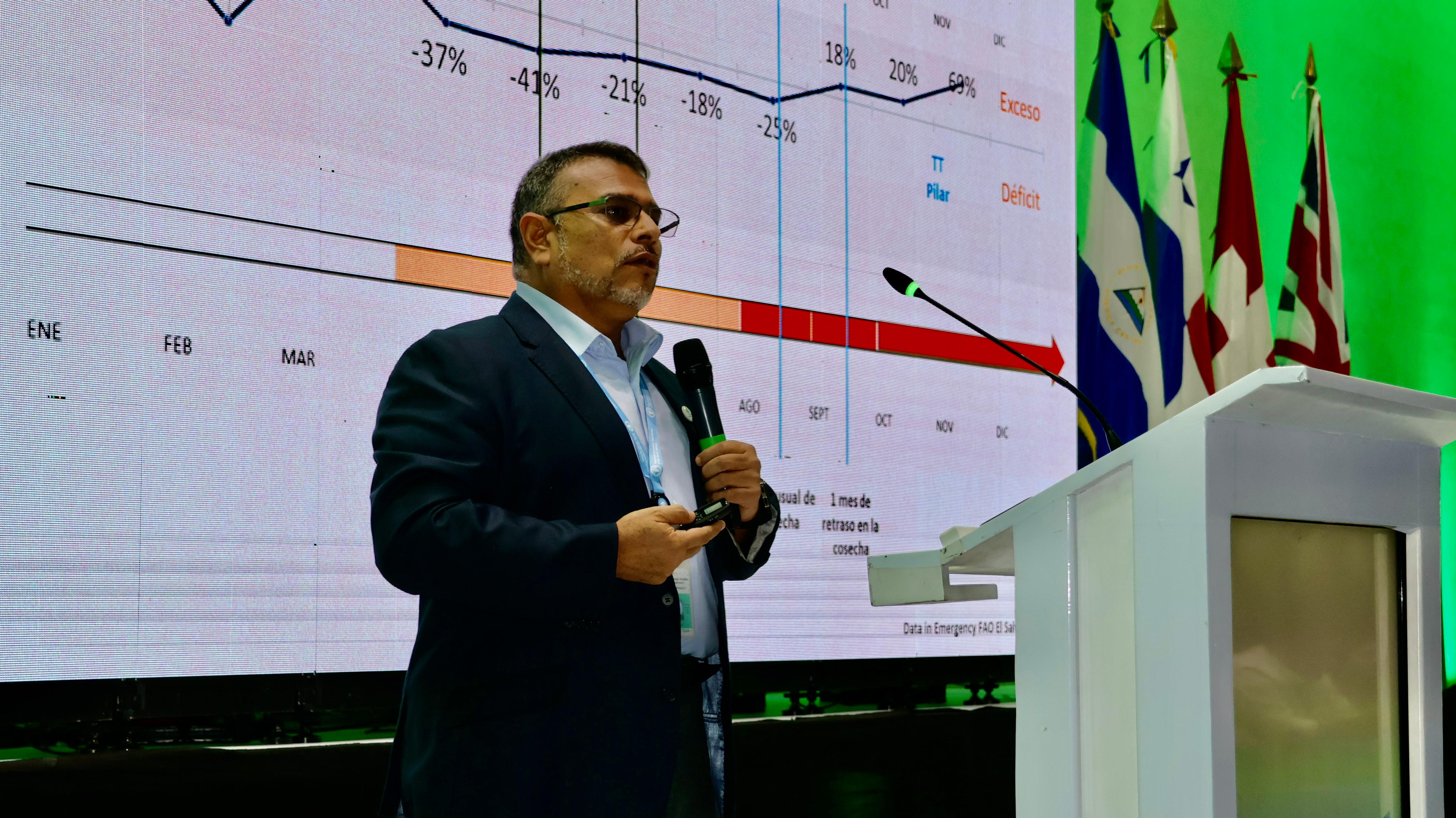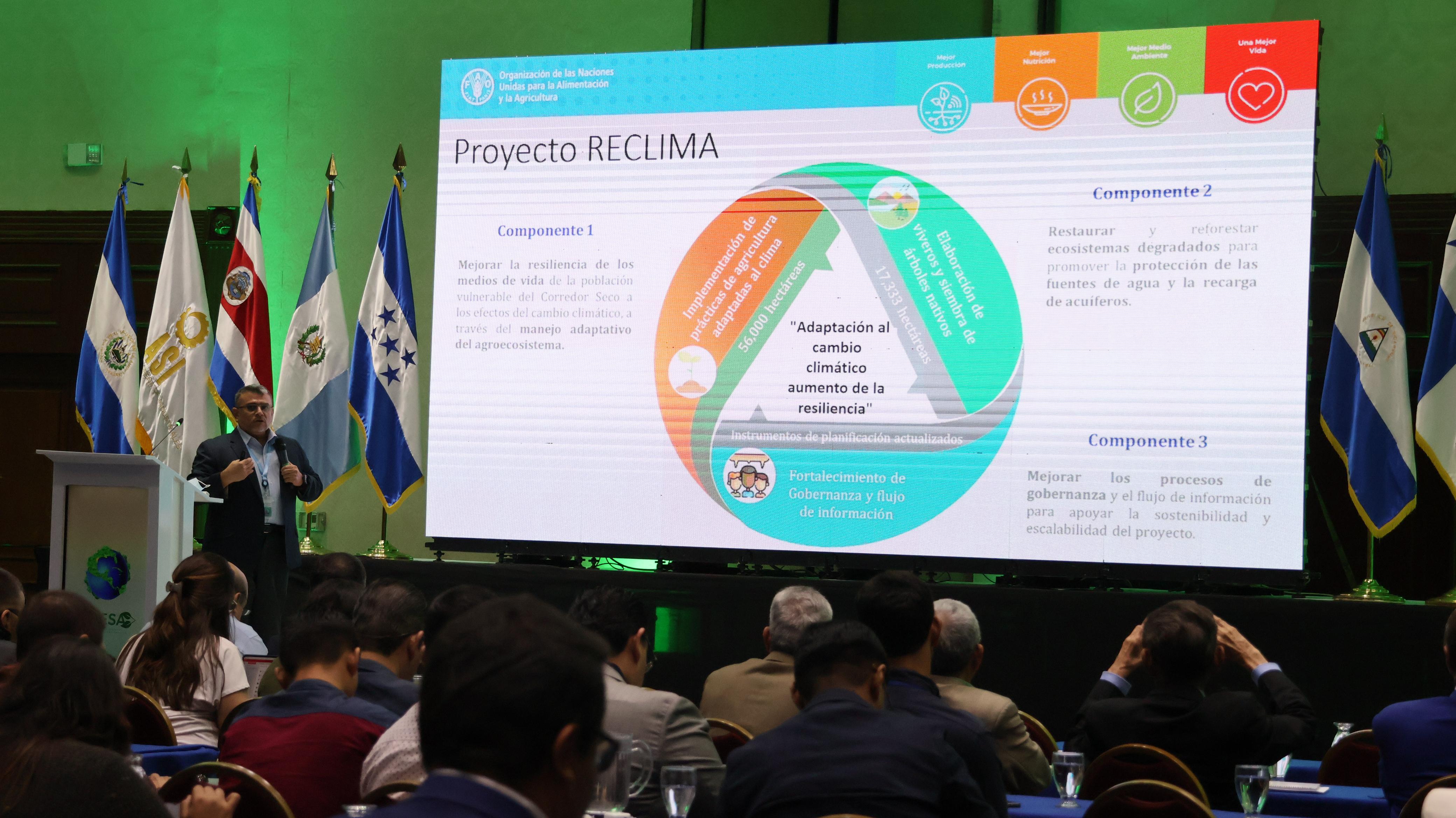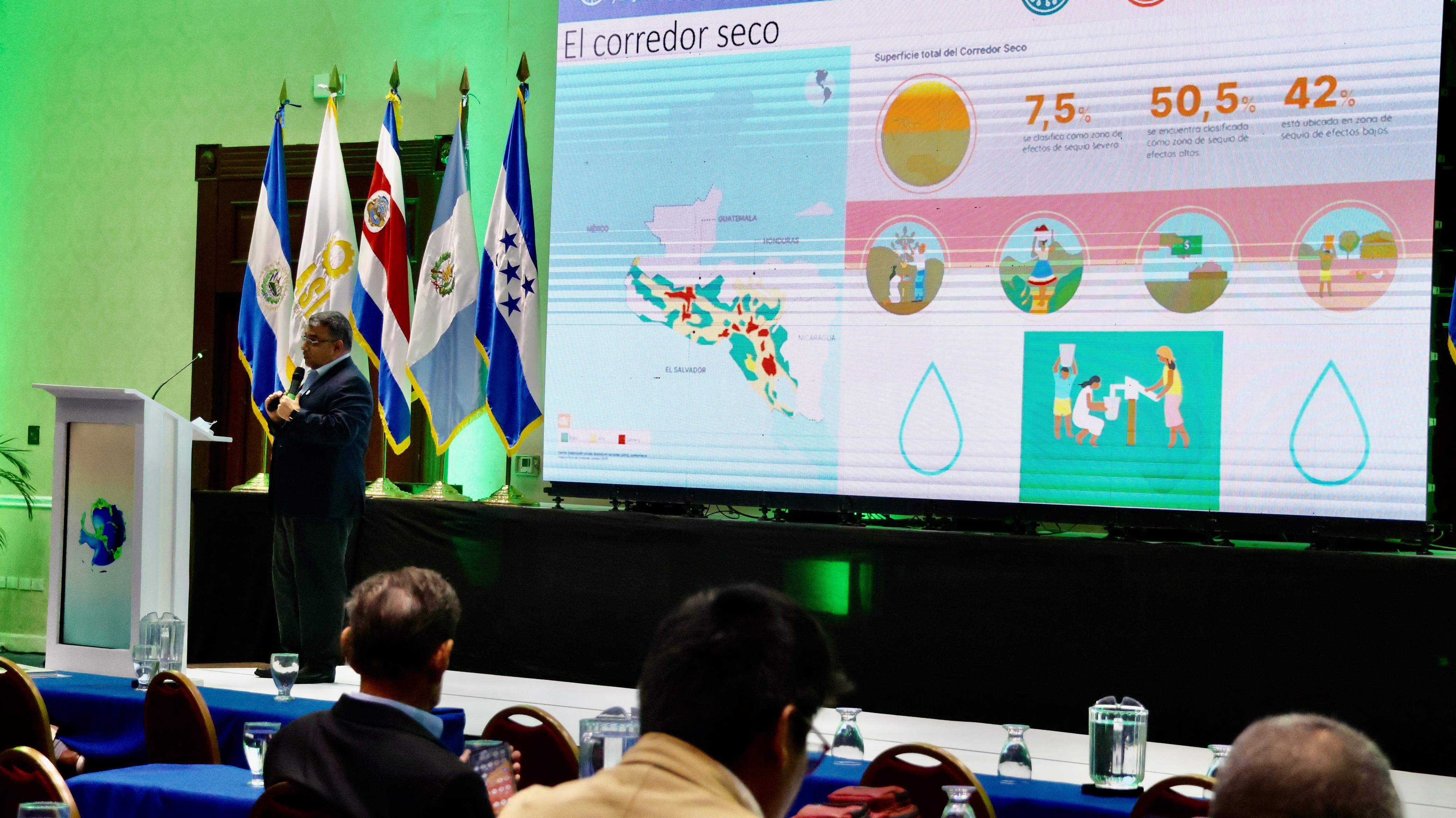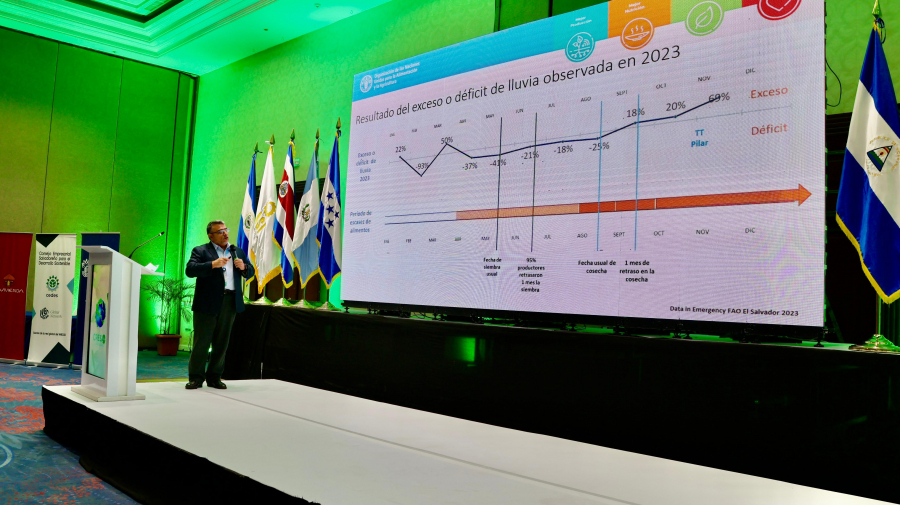Climate change and climate variability are causing major challenges for agriculture in the Central American dry corridor. With only 2.5% of the freshwater available on the planet, the region faces water deficit problems, with rainfall below 300 millimeters in some territories. This affects the vulnerability of families and ecosystems, as well as productive activities that depend on water. There is a need to improve access to water by implementing practices such as improving infiltration and rainwater harvesting.

Hillside agriculture lacks sustainable practices, which increases the vulnerability of small farmers. Climate change brings irregularities in rainfall patterns, along with deforestation and soil degradation, which can cause flooding and impact soil fertility. The use of efficient irrigation systems and sustainable practices are recommended to conserve soils.

Impacts include crop loss, decreased production, and affected profitability, especially for rural communities that depend on their production for food. Health effects are observed, such as diseases related to lack of hygiene, and displacement and migration due to lack of resources to stay in the affected territories.

Climate variability also affects the availability of water for human and agricultural consumption, requiring strategies to balance the use of water resources. The importance of working with territorial stakeholders to understand and adequately address these challenges is highlighted.

FAO El Salvador, for the care of water in rural areas, seeks to generate positive impacts in the communities. Through the implementation of systems for the storage and collection of water, improving access to this vital resource, which benefits both families and the community in general.

This translates into greater food security, family strength, community resilience and empowerment of women by reducing their workload in water supply. In addition, additional income-generating activities are promoted, and water quality is ensured through purification and monitoring processes.
Translated by: A.M
 English
English  Español
Español 
